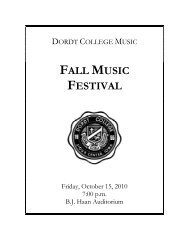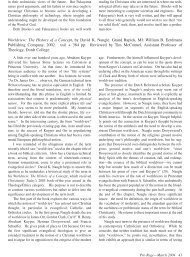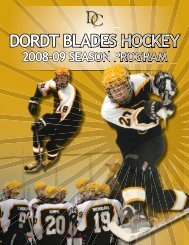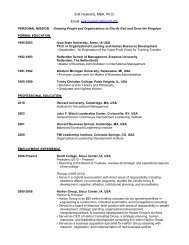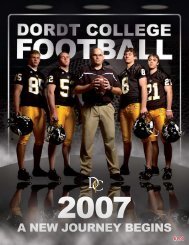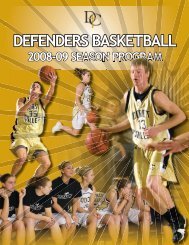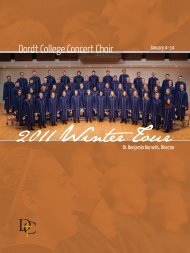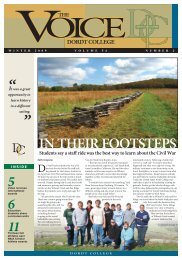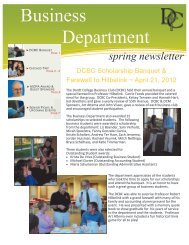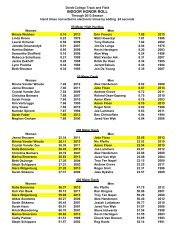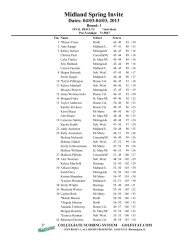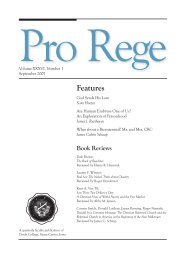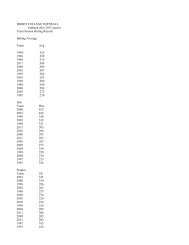June 2009 - Dordt College
June 2009 - Dordt College
June 2009 - Dordt College
Create successful ePaper yourself
Turn your PDF publications into a flip-book with our unique Google optimized e-Paper software.
listening. It is all of these things and more. Webb winds<br />
together threads from many disciplines, jumping from<br />
theology to history to actor training to Moses to the church<br />
fathers to contemporary theologians to his own story. At<br />
times dizzying and always thought-provoking, Webb’s grasp<br />
of all of these disciplines and ideas is impressive. His use of<br />
personal examples appears like a breath of fresh air or, more<br />
appropriately, like a pause in the middle of a complicated<br />
speech. Stylistically, Webb’s work is almost creative writing<br />
rather than scholarly writing. Although some may be<br />
bothered by his more lyrical passages, I enjoyed how they<br />
engaged my senses in multiple ways. He writes,<br />
We do not speak first and then think about God<br />
as speaking too. On the contrary, we can speak only<br />
because God created us to be hearers of God’s Word.<br />
We are created in God’s image, but that image is more<br />
like an echo than a mirror. God spoke us into being<br />
so that we too might have the joy of sharing in the<br />
spoken Word (15).<br />
Webb’s use of language is evocative. The sound of his<br />
language is part of the pleasure in reading this book.<br />
Ultimately, Webb challenges us to reconsider how we<br />
live in a noisy world. Most significantly, he argues that the<br />
contemporary church must conceive of the Bible as an oral<br />
book. We need to develop our auditory imaginations by<br />
hearing the scripture in a new way. We must read scripture<br />
out loud to discover the “voice” of the text. This means<br />
using all the skills of the art of rhetoric. God authorized<br />
scripture to be written, and in the same way He authorizes<br />
readers to sound it according to his will. This should change<br />
our worship as a result. Silence, music, and the voice no<br />
longer sound quite the same after reading The Divine Voice.<br />
Fittingly, the last pages of the book offer a glimpse of what<br />
sound will be like in heaven: “In heaven, our voices will<br />
no longer be carried along by vibrations but instead will<br />
travel at the speed of grace, and the divine voice will sound<br />
amazingly sweet” (239). This is a soundscape to long for.<br />
Erratum<br />
In the March issue, Jim Schaap’s article, “Reverence, Mystery, and Christian Education,”<br />
states the following: “One quick story: Many here remember Rev. Tony Van Zanten, who<br />
ministered faithfully at Roseland, suburban Chicago, before he was called home” (38). Dr.<br />
Schaap and the editor of Pro Rege deeply regret the error. Rev. Tony Van Zanten lives in the<br />
Chicago area.<br />
28 Pro Rege—<strong>June</strong> <strong>2009</strong>



